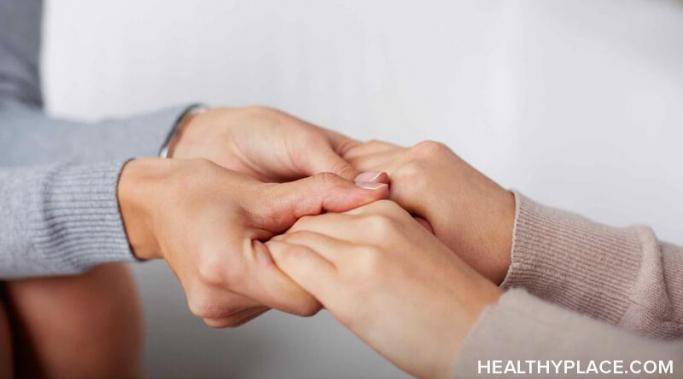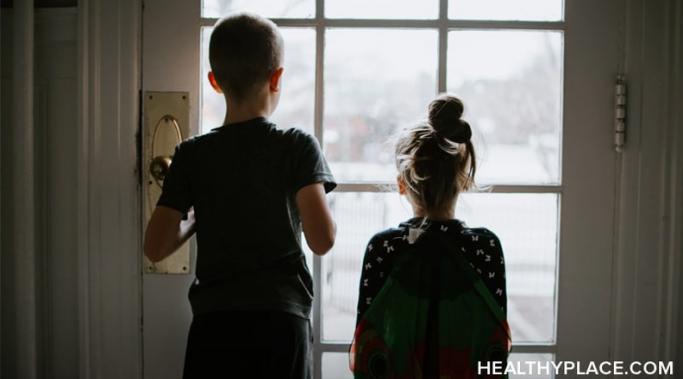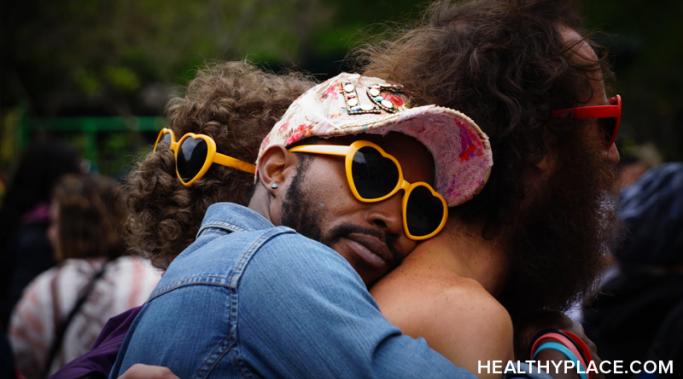When we're supporting someone with mental illness, I think it's very important to constantly examine how healthy our relationship with that person is. As my brother lives with chronic mental illness, I have first-hand experience of how unhealthy behaviors can easily creep into relationships, even with the best of intentions.
Peer-to-Peer
Everyone has different coping methods that they choose to use, and it can sometimes seem like not all coping mechanisms are as helpful as others. There might come a time when you have to come to terms with and accept a loved one's preferred coping method. This is the story of a time I went through that situation.
I have been down a serious Google rabbit hole this past week on the subject of mental illness masking other conditions. The reason for this is personal -- my brother is currently undergoing diagnostic testing for autism. The more I think about this, the more it makes sense that mental illness could inhibit timely diagnosis of other issues.
Respecting the boundaries of mentally ill loved ones should be a given, but sometimes we push these boundaries -- I've certainly been guilty of this in the past. Even when this is done out of good intent, I don't believe it is a fair thing to do. I have learned a lot on this topic through my experience with my brother, who has chronic mental health problems. Here's a bit of a reflection on those learnings.
I am experiencing heightened anxiety at the moment, as I am waiting for important medical results. I usually avoid sharing my anxiety with my family, but this time I decided to be more open. Telling my brother, who has chronic mental health issues, about what I am going through was surprisingly helpful.
Pets are important and beneficial in general, but they can play a special role in the lives of those with mental illness. I never owned any pets as a child, but I adopted a dog as an adult, and my brother has become an honorary pet parent as a result. I am amazed to watch how his relationship with my dog helps him cope with chronic anxiety and depression. Here is a short reflection on the benefits of pets for family members with mental illness.
Approaching others about their mental health can be an awkward situation, but sometimes it's necessary. A big regret I have about my brother's journey with chronic mental illness is that I didn't raise my concerns about his symptoms sooner. If you're unsure whether or not to have that difficult conversation with a friend or family member, here are some insights I've picked up over the last few years.
Even though we belong to the same family, not all of my siblings had the same experience growing up -- one of us grew up with attention-deficit/hyperactivity disorder (ADHD). Where I had the luxury of growing up as a focused straight-A student, my brother was not so lucky. When he was diagnosed with ADHD, my family began to understand that he was different. I wanted to share this story so that the people who feel different no longer have to feel so alone.
In January, wellness culture tends to be more prominent than ever -- it seems as if the whole world becomes intent on creating a healthier, more productive version of themselves. For those with mental illness, this narrative can be damaging. My brother, who has chronic anxiety and depression, has often spoken about how wellness culture can leave him feeling frustrated and inadequate.
It's always important to be mindful of mentally ill loved ones, but it's especially important around the holidays when routines change, and symptoms can intensify as a result. I've noticed in the past that my brother (who has chronic mental health issues) can particularly struggle at Christmas time. This year, I'm hosting a family Christmas day gathering for the first time -- here are some of the steps I'm taking to make my brother's mental health a priority during the celebrations.









